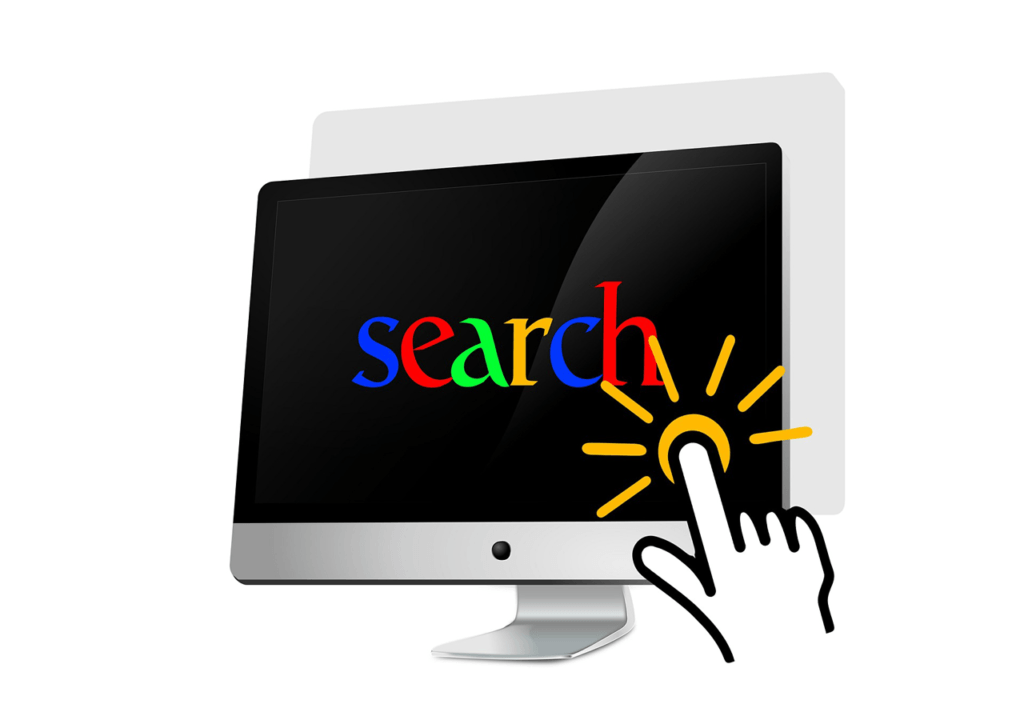One week ago I wrote an article explaining what is Search Engine Optimisation (SEO) and this is a follow up article with a few tips on how you can get your website to rank higher in search engines. I will focus on Google because 90-95% of all searches in Ireland are conducted on Google.
Understanding How Google Search Works
Google uses what it calls spider bots (Software) to scan all the webpages it can find on the web. Most websites consists of multiple pages, such as home page, about page, contact us etc, and when scanned by a Google spider bot, Google indexes each web page based on the information on that page and stores it.
When a person searches for anything on Google, Google uses an algorithm to search through the previously indexed/stored web pages and it identifies the web pages that it believes is the best match to what the person is searching for. Google then returns to the person doing the search, a number of pages with all the indexed web pages listed in order of relevance: this is called the Search Engine Results Page(s) (SERP(s)). Anyone that has done a search on Google knows that this process only takes a fraction of a second.
How Can Your Website Rank Higher In Google
At this stage we all agree: the higher we can rank (rank = display) on page one in Google for the keywords relating to our business then the better of a return we will get for our business. The key to ranking well is Google’s algorithm. It is complex and it assesses over 200 factors to decide whether your web page is the one that should top the SERP. Factors can be internal to your website, such as good content enriched with keywords and some factors can be external such as good quality links from other sites. Google’s algorithm rates some factors as more important than others. With experience you can identify the most important factors but nobody knows definitively all of the factors and how Google rates them. Also, the algorithm changes from time to time and this can affect your rankings.
SEO focuses on Google’s algorithm and I would describe it like baking a cake: we know roughly what the ingredients are and the more of the right ingredients that we put in, the better the cake will taste. So the more of the important factors that we can provide for Google’s algorithm then the higher your website should rank.
Three Things To Improve Your Websites Ranking In Google
1. Title Tag/Page Title
A “Title Tag” is the main text that describes a web page and every page should have one. “Title Tags” are considered one of the most important factors in Google’s algorithm and a “Title Tag” appears in three key places: browsers, search engine results pages (SERPs), and external websites. The example below is how a “Title Tag” (1 “Digltal Marketing Consultant in Mayo, Galway and Sligo”) displays on a SERP on Google.
Source: Google.ie
The “Title Tag” should explain to the Google spider bot what the web page is about and importantly when it is displayed on a SERP it has to make sense to the reader so that they will click through to your website. At the end of the day SEO is about attracting new customers.
When creating a “Title Tag” Google typically displays only the first 50-60 characters of a title tag (Moz, 2014). When developing a “Title Tag” it should contain keywords relating to your business: the products you sell or the service you offer.
2. URL (Permalinks)
A “URL” (No 2 pictured above, i.e www.www.www.enablemarketing.ie/about/) is human-readable text that was designed to replace the numbers (IP addresses) that computers use to communicate with servers (MOZ, 2014). The “URL” contains your domain name, e.g www.yourwebsite.com which is your website address and it describes a web page, e.g www.yourwebsite.com/about-us/, to visitors and search engines. Keeping “URLs” descriptive, relevant, compelling, and accurate is an important factor to ranking well.
When adding pages to your website and creating new “URLs” it is important to follow these guidelines
- A “URL” of a web page should be helpful to humans and Googles spider bot, it should be descriptive and use a key word relating to your business. It should be easy to tell the subject of the web page just by examining the URL.
- If a site’s structure has several levels of files and navigation, the URL should reflect this with folders and subfolders, e.g www.yourwebsite.com/services/seo.
- Use hyphens to separate words when necessary for readability but overuse of hyphens can be seen as spammy. (MOZ, 2014)
3. Meta Description
“Meta Description Tags” (No 3 pictured above, i.e Enable Marketing is a…), some suggest that they are not important to search engine rankings but they are extremely important in gaining user click-through from search engine results pages (SERPs). I describe the “Meta Description Tags” as your sales pitch: the reason why someone would click through to your web page over your competitors.
When creating them you should employ the keywords intelligently, but also create a compelling description that encourages the searcher to click through. Direct relevance to the page and uniqueness between each page’s meta description is essential and the description should optimally be between 150-160 characters (Moz, 2014).
Conclusion
Getting your website to rank higher in Google is a challenge for every business. I hope you implement these three things on your website and I am confident that if done correctly they will make a big impact on your website performance.
Featured Image by Geralt / Pixabay.com
- Minister Michael Ring Launches P. O’Connor & Son Website - April 19, 2018
- What Style Of Leader Are You? - October 26, 2016
- Mobile Friendly Websites Have Become Way More Important - October 17, 2016
Join Our FREE Newsletter
Each week we will give you free tips & marketing advice for your business!
